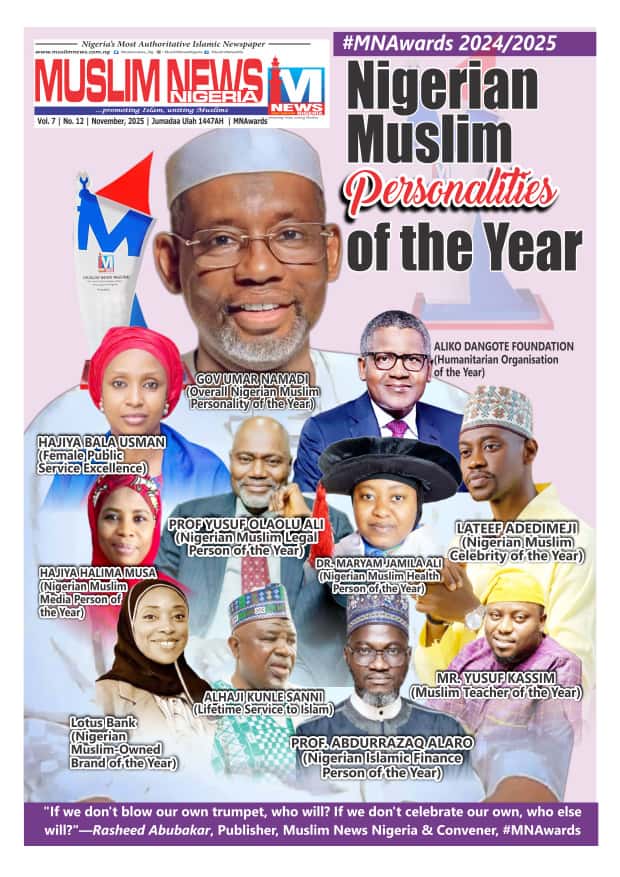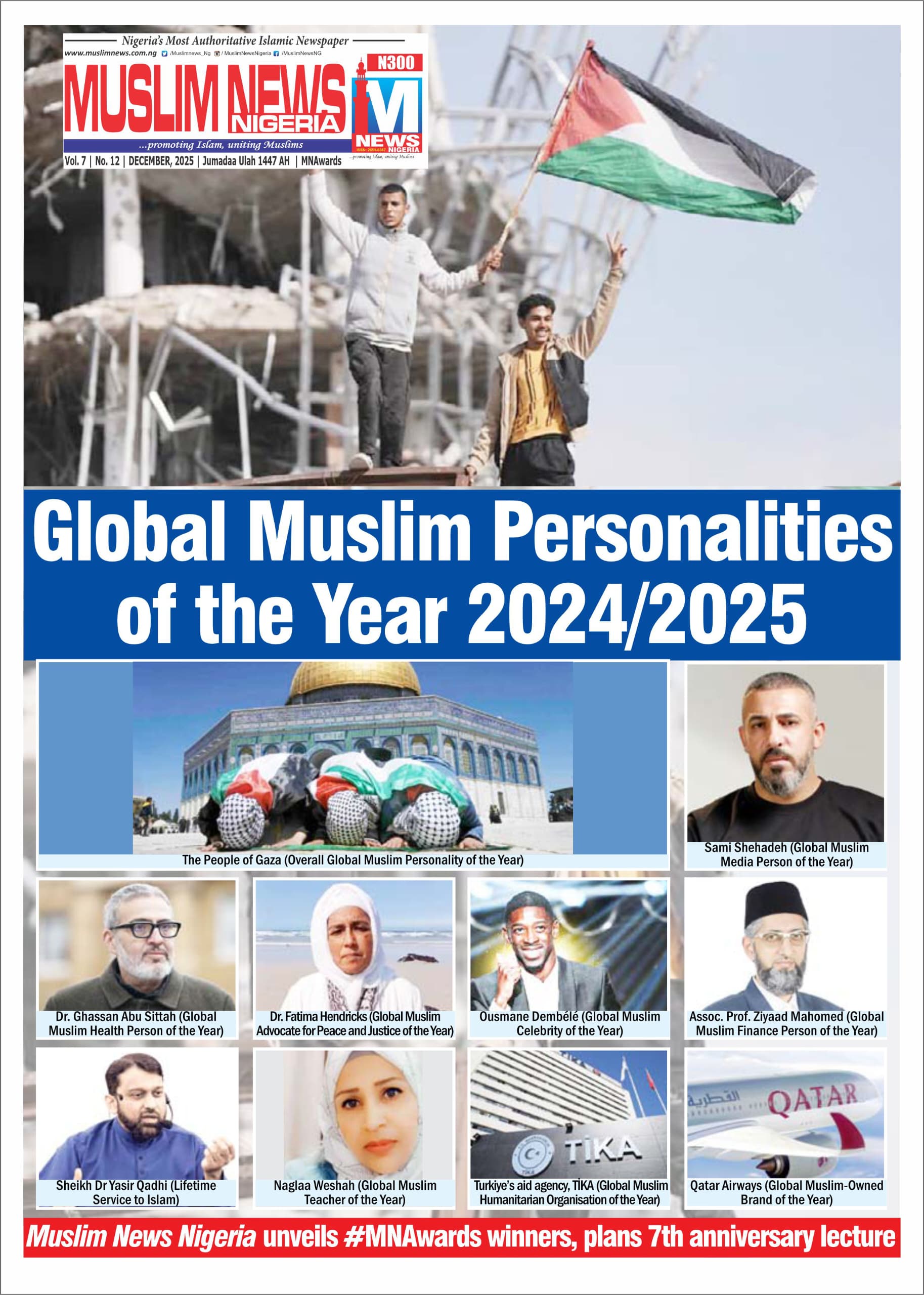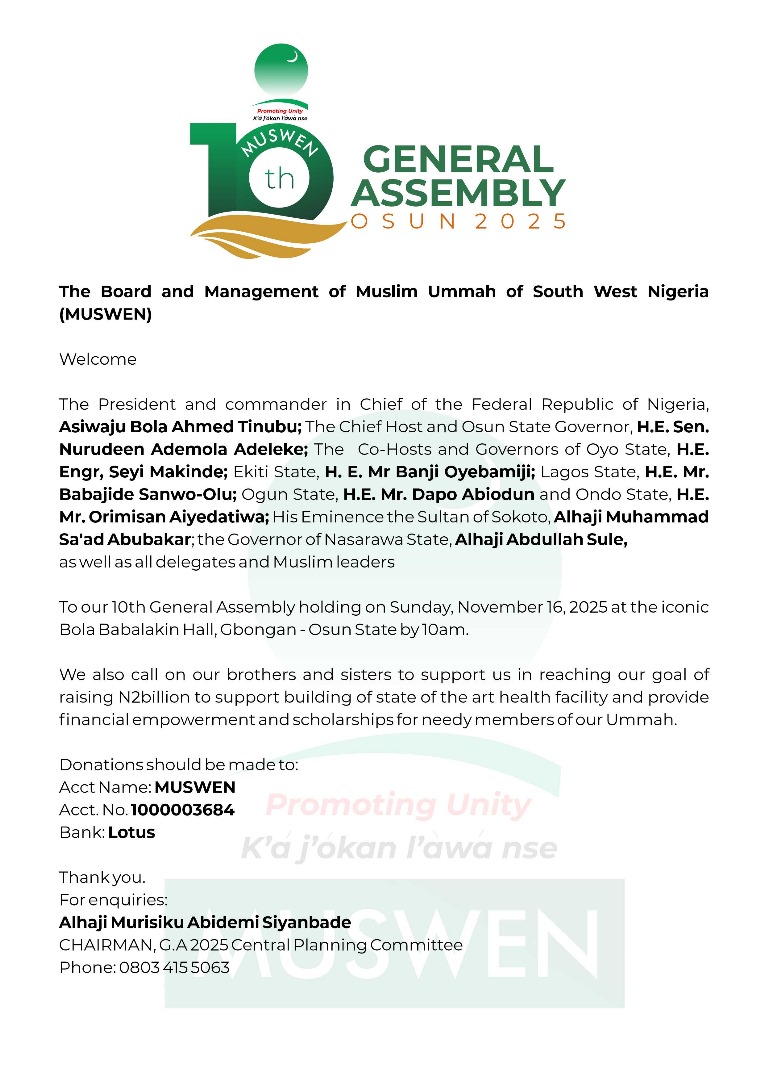* Urges Muslim leaders to engage in massive media literacy
A chieftain of the ruling All Progressives Congress (APC), Ambassador Nurain Abayomi Mumuni, has advised Southwest governors to dialogue with the leadership of the Muslim community to avoid conflicts over Shari’ah (Islamic Law) in the region.
Mumuni made this declaration via a statement issued on Monday by his Media Aide, Rasheed Abubakar, where he also called on the leadership of the Muslims to engage in massive media literacy about Shari’ah, especially among its members.
Recall that the Southwest Muslims have been clamouring for the establishment of Shari’ah Arbitration Panels in the zone to handle civil matters such as marriage, divorce, inheritance, and disputes over contractual agreements between Muslims.
In a reaction, APC chieftain advised the governors who opposed its establishment to engage the leadership of the Muslims in the Southwest states in a dialogue, stressing that Yoruba Muslims have long integrated Islamic practices into their cultural framework.
According to him, there is a need for the state governors especially Ekiti, Oyo and Ogun to dialogue with the Muslim community in the interest of peace and to avoid hostility and conflicts that may lead to anarchy.
“What the Muslims are demanding is clear. They want a panel that will handle their personal affairs such as marriage, divorce, inheritance, among others. They are demanding for civil law, which is guaranteed by the constitution. The Shari’ah panels aren’t meant for and cannot adjudicate in criminal offences such sentencing or amputations.
“Therefore, there is need for government to dialogue with the leadership of the Muslims especially MUSWEN and allow any willing Muslim to follow the dictate of his or her religion.”
The security expert called on the leadership of the Muslims to sensitise their members and use the minbar (pulpits) on Friday, noting that, “Many Muslims surprisingly kicked against the introduction of Shari’ah Panel out of sheer ignorance, misinformation and lack of understanding.
“Some don’t even know that the Shari’ah panel has been in existence in some states for years. There is a need for massive media literacy among the Muslims while their leaders engage the government to avoid conflicts.”
He added that the introduction of Islam to the Yoruba people dated the 10th century, and its establishment developed over subsequent centuries, leading to a significant Muslim population in this region.
He advised that it is crucial to foster an environment of dialogue and mutual respect among different religious groups to mitigate conflicts surrounding Shari’ah practices.
He added that this will help to ensure that these traditions are embraced as a personal choice rather than an imposition.
“The Yoruba Muslims of Southwest Nigeria have long integrated Islamic practices into their cultural framework, reflecting a rich tapestry of traditions that honour both their religious and ethnic heritage. The introduction of Islam to the Yoruba people can be traced back to the 10th century, and its establishment developed over subsequent centuries, leading to a significant Muslim population in this region.
“One of the most prominent aspects of Shari’ah practised by Yoruba Muslims is its application to marriage and burial rites. The Islamic marriage contract, known as Nikaah, holds significant cultural and religious importance. The Nikaah ceremony involves various elements that affirm commitment between partners, often integrated with traditional Yoruba customs. This practice highlights how Yoruba Muslims harmonize Islamic tenets with their indigenous traditions, ensuring that their cultural identity is maintained alongside their religious obligations.
“While the practice of Shari’ah is prevalent among Yoruba Muslims, it is important to underscore that it has not been devoid of contention. The application of Shari’ah can sometimes be perceived as controversial, particularly in a multi-religious society like Nigeria, where the imposition of specific practices can lead to misunderstandings and conflicts.
“However, it is imperative to view Shari’ah as a guiding framework rather than a rigid set of rules that should be imposed upon the broader society. Many Yoruba Muslims advocate for a nuanced understanding of Shari’a as it pertains to personal choice and community consensus. This perspective emphasizes that practices such as Nikah and burial rites, while rooted in Islamic law, should not lead to rancour between different religious groups.
He added, “The Yoruba Muslims of Southwest Nigeria represent a unique blend of religious devotion and cultural identity. Their longstanding practice of Shari’a in marriage and burial rites showcases how they navigated the intersection of faith and culture.
“It is crucial to foster an environment of dialogue and mutual respect among different religious groups to mitigate conflicts surrounding Shari’a practices, ensuring that these traditions are embraced as a personal choice rather than an imposition. By honouring both Islamic teachings and the rich Yoruba culture, a harmonious coexistence can be achieved, enriching the multi-religious tapestry of Nigeria,” he added.







